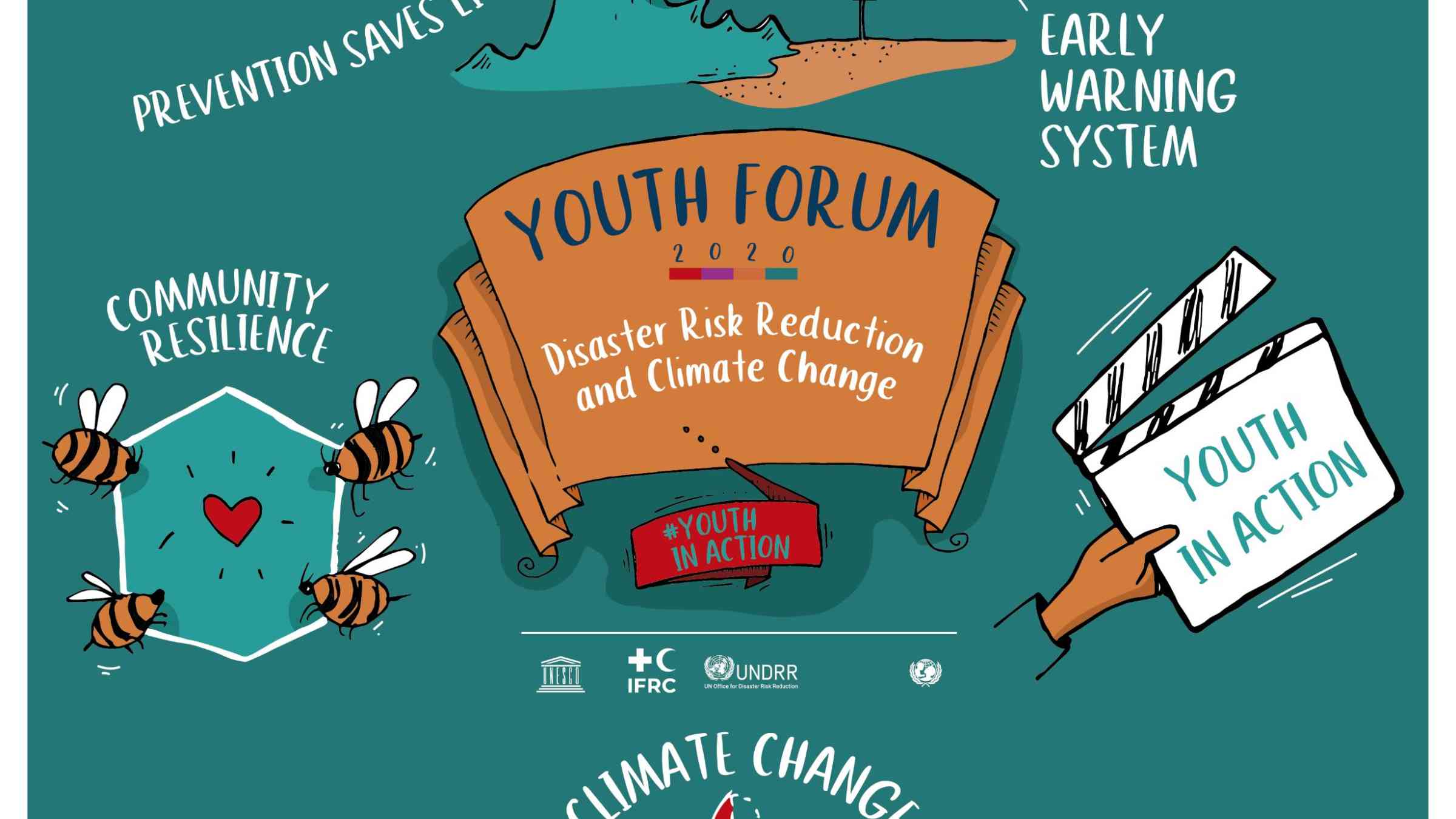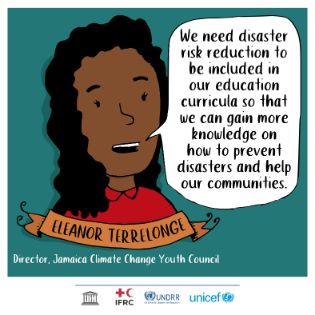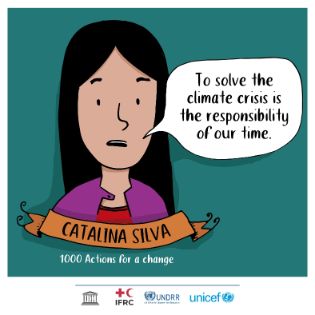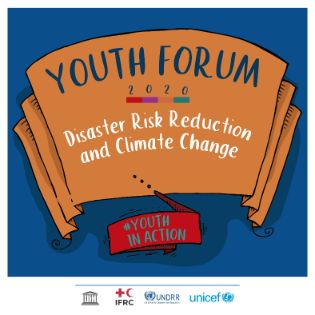Building resilience through youth leadership

The future is in good hands. The young people who participated in the “Disaster Risk Reduction (DRR) and Climate Change Youth Forum”, held on August 12th in the framework of International Youth Day, showed great interest in becoming even more involved in the design and planning of disaster risk reduction strategies and actions to combat climate change. The reason is simple: they want a better world.

“Youth initiatives do not work with DRR because they are not familiar with the issue. We need a better connection with young people to improve their understanding. We must democratize knowledge about DRR,” said Eleanor Terrelonge, founder and director of the Jamaica Climate Change Youth Council. The Sendai Framework for Disaster Risk Reduction 2015-2030 clearly states that: “Children and young people are agents of change and must be given the space and modalities to contribute to disaster risk reduction, in accordance with legislation, national practice and educational curricula.”
This is why young people from all over the Americas and the Caribbean region, supported by members of the United Nations Inter-agency Issue Based Coalition (IBC) on Climate Change and Resilience, including UNDRR, UNICEF and UNESCO, and partners such as IFRC, organized this forum to contribute to a greater rapprochement of climate change and disaster risk reduction action strategies.

Action becomes all that more necessary considering that children and young people are among the most vulnerable groups in the face of disasters. According to a study by the Economic Commission for Latin America and the Caribbean (ECLAC), disasters will impact 175 million children per year by the end of this decade.
In addition to Terrelonge, the board included Natalia Gómez Solano, co-founder of the Costa Rica Youth and Climate Change Network (Red de Juventudes y Cambio Climático de Costa Rica); James Ellsmoor, director and co-founder of Solar Head of State, a nonprofit organization that promotes renewable energy; and Catalina Silva, one of the leaders of the regional campaign “1000 Actions for a Change”, which promotes climate action through youth activism.

Most of these youth leaders are also part of the Youth Committee of the VII Regional Platform for Disaster Risk Reduction in the Americas and the Caribbean, to be held next year (date to be determined). According to a youth survey carried out ahead of the forum, and within the framework of the Regional Platform, only one in four young people is aware of national DRR strategies. However, 88 percent of those surveyed understand the importance of creating DRR strategies, and 80 percent want to participate in these processes.
“The strength of the collective is each individual. The strength of each individual is the collective,” said Natalia Gómez Solano, who, like the other panelists, delved into how the systemic nature of the COVID-19 pandemic put the impact of disasters into perspective and how youth initiatives can help reduce these risks through mechanisms and policy making.

At the end of the forum, several of the youth leaders committed to participate in the creation of regional networks that promote disaster risk reduction and environmental resilience knowledge to develop a platform that influences creating policies and processes in the Americas and the Caribbean.

Explore further
Is this page useful?
Yes No Report an issue on this pageThank you. If you have 2 minutes, we would benefit from additional feedback (link opens in a new window).